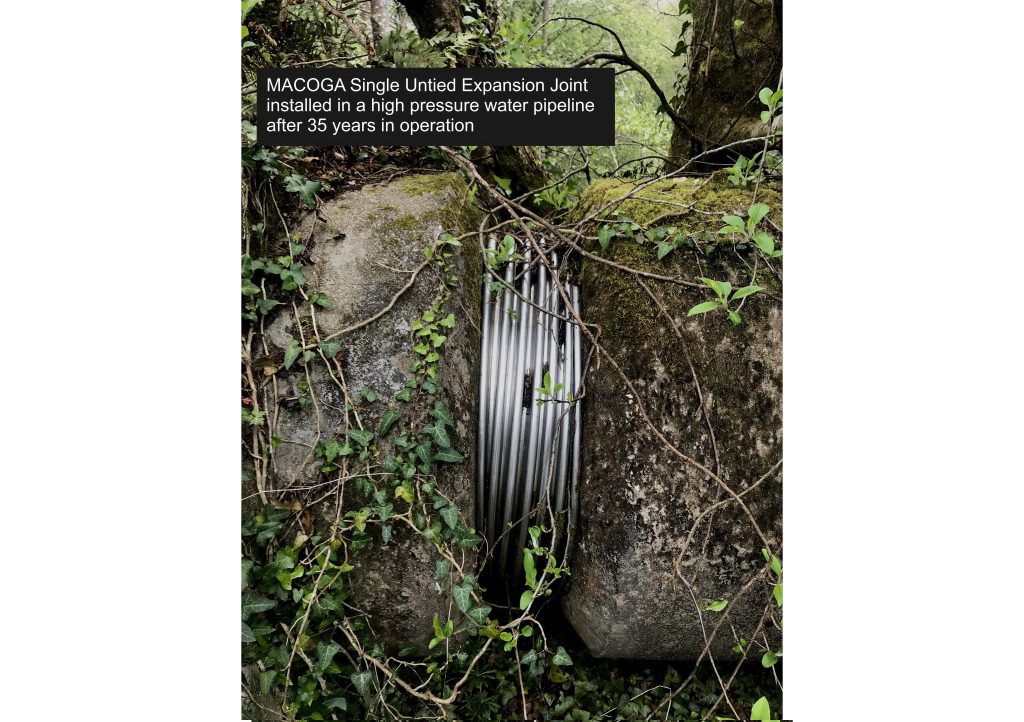Quality matters
All Expansion Joints will eventually fail
at some point, but it is important to prevent premature and unexpected
failures.
When it comes to providing highly engineered Expansion Joints MACOGA is the most reliable in the industry.
The fatigue life of a metal joint is affected by many factors such as temperature, pressure, movement, vibration and how the expansion joint was initially designed and manufactured. Typically, metal expansion joints have a defined cycle or fatigue life that can be calculated.
The more critical the application, the greater emphasis there is on equipment reliability.
Should an Expansion Joint fail in a critical application there might well be redundancy and/or repair technology in place, however, there may not be an opportunity to repair or replace the failed product until a scheduled period of downtime.
The design is the responsibility of the manufacturer and in MACOGA we use the most sophisticated analysis and calculation software to design and select the most appropriate Expansion Joint for each specific application. We design, manufacture and test in accordance with: E.J.M.A. (Expansion Joint Manufacturers Association, Inc.), ASME VIII, Div. I, App. 26 and EN 14917, European Standard for Metal Expansion Joints.
The choice of metals to be used in manufacturing of an Expansion Joint is a critical point to guarantee the correct performance and long life and is made taking the following criteria into account: temperature resistance, resistance to corrosion, forming capacity, mechanical characteristics, resistance to fatigue, flexibility when in use (bellows), etc.
A production activity following all applicable quality standards is a fundamental step in the process. In MACOGA we have processes and procedures validated over the years, machinery specifically designed for the manufacture of expansion joints, certified welding processes, approved welders, etc.
All Expansion Joints must undergo a series of controls and tests at each of the different steps in the manufacturing process and before they leave the factory like: Radiographic Examination, Liquid Penetrant Examination, Ultrasonic Examination, Magnetic Particle Examination, Pneumatic Pressure Test & Leak Detection Test, Hydraulic Pressure Test, PMI (Positive Material Identification), Chemical and Mechanical Analysis of materials used, Spring Rate Test Helium Leak Detection Test, etc.
The life of the expansion joints varies with the design, storage conditions, installation practices, application, and service. Appropriately timed inspections, repairs, and/or replacement of critical joints will ensure the reliable operation of the associated equipment and of the whole plant.
Premature or unexpected failure of the expansion joints and emergencies can be avoided carrying on-site scheduled inspections. On-site Inspections will provide valuable information about the conditions of the Expansion Joints and will allow the plant to take appropriate actions in due time.
Following this philosophy and all the
processes properly, the customer will obtain high quality and reliable
expansion joints that will be in safe operation for a long time.

